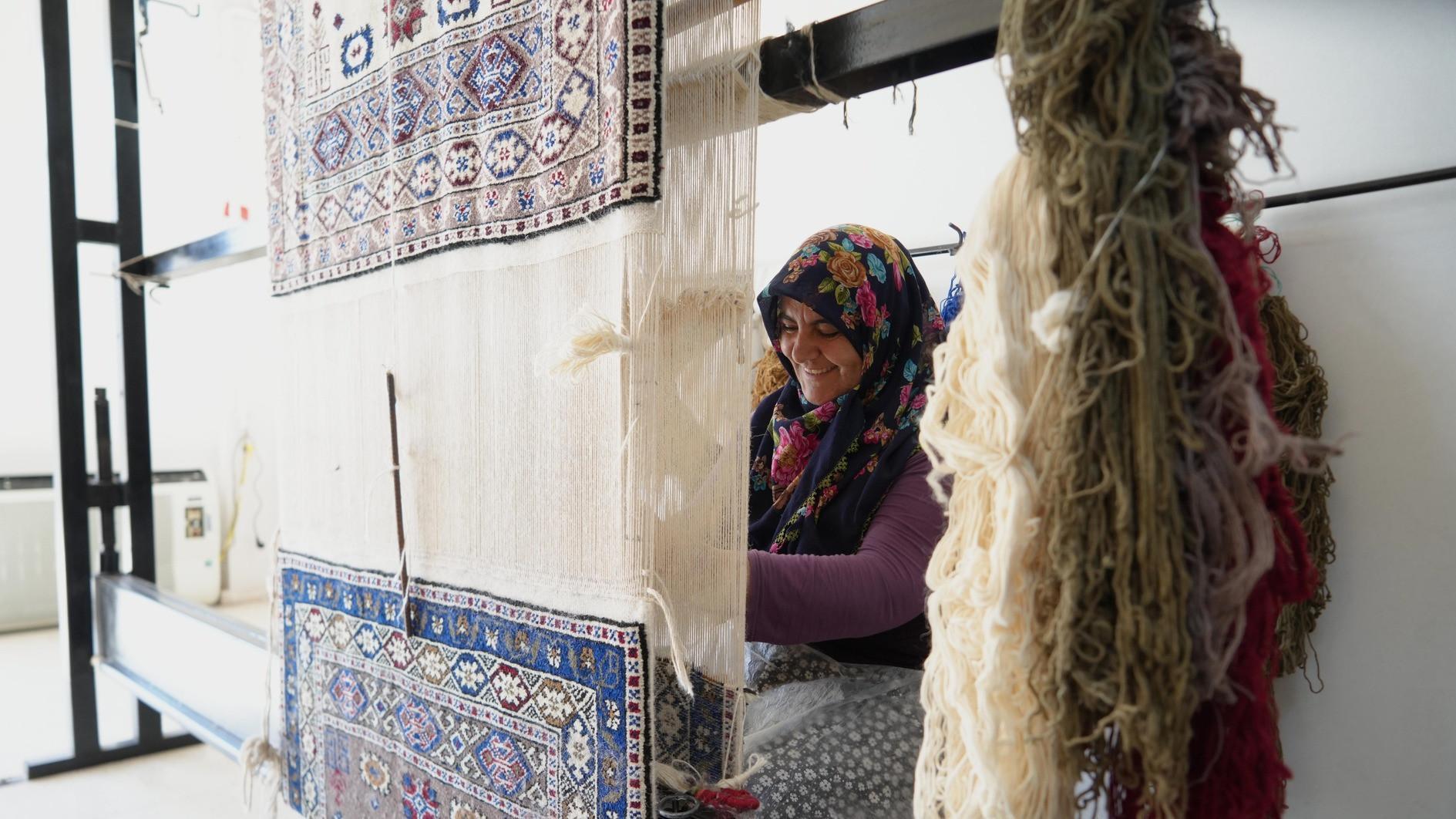
In the heart of the Central Anatolia region of Türkiye, a cultural resurgence is underway as women in Niğde’s Bor district seek to revive a dormant tradition through a workshop where they meticulously weave the city’s hand-made Obruk carpets.
Registered with a geographical indication in 2017, the obruk carpet, also known as "Arısama," is crafted fully with wool and root dye, with each motif carrying profound significance.
"We are striving to preserve the art of carpet weaving, an integral part of Bor’s material and spiritual heritage," master instructor Kadriye explains.
With motifs depicting herbal, animal, and geometric symbols, the carpets narrate stories embedded in local culture.
Embodying the resilience of women, motifs like the hand on the waist symbolize strength and motherhood, while the ram’s horn motif signifies masculine power. "We have many motifs such as stars, scorpions, combs, apple blossoms," Sarıç shared.
Delving deeper into the narrative of the Obruk carpets, Sarıç reveals the poignant tale behind motifs like ‘Çavuşlu,’ depicting a woman’s longing for her husband serving in the military woven onto the carpet. "There is a sense of introversion there," she added.
For the women of the workshop, carpet weaving not only provides financial independence but also fosters a sense of community.
"We contribute to our household incomes and meet our needs," Emine Kalkan shares, highlighting the economic empowerment afforded by their craft.
Nuray Ergül, housewife turned artisan, echoes this sentiment, stating that the workshop transformed her life.